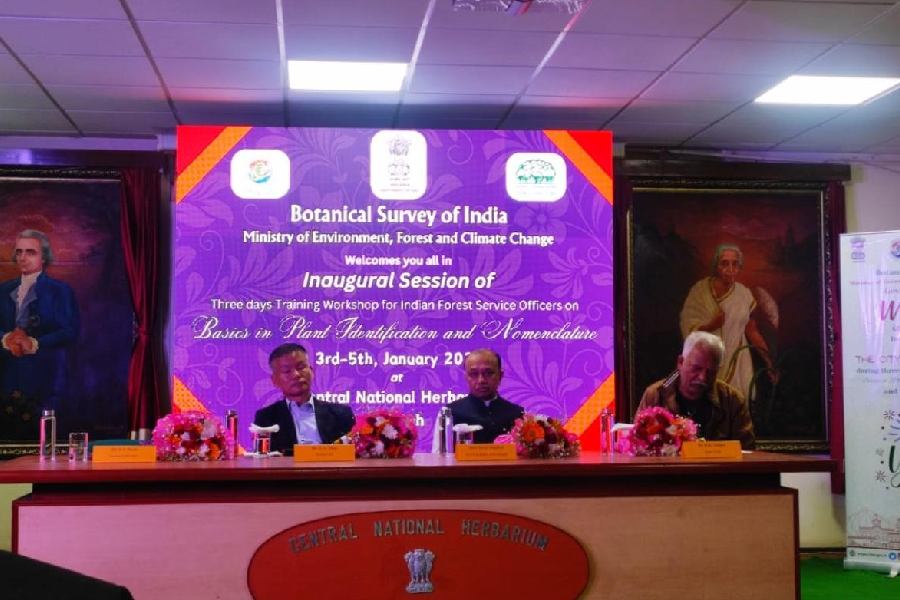A group of 17 Indian Forest Service (IFS) officers got trained in plant taxonomy at the AJC Bose Indian Botanical Garden to help them identify different plant species.
A three-day workshop titled Basics of Plant Identification and Nomenclature, that ended on Friday, was conducted by the Botanical Survey of India (BSI) for the first time.
The Botanical garden will also have a taxonomy garden where live plants of various species will be grown to educate students, officers and other interested people.
The BSI is gearing up to hold another workshop for foresters on the management of the mangrove ecosystem in March.
The workshop on plant taxonomy included classroom lectures, debates, discussions and fieldwork. The fieldwork was conducted in the garden’s nature trail park that was inaugurated last year. The garden is a living repository of 1,377 species of plants and is a living laboratory for botanists, foresters, students and warriors of climate change.
The Central National Herbarium, where the workshop was conducted, contains about two million dried specimens of plant species. The planned taxonomical garden spread over will have 217 species of plant families.
“We will start work on the taxonomy garden this month. We plan to collect species of plants from all our regional centres spread across the country,” said garden director Devendra Singh.
Inaugurating the workshop, BSI director A.A. Mao stressed the need for knowing plant taxonomy to preserve bio-diversity and working towards achieving Sustainable Development Goals (SDGs).
“You need to know what is inside your forest, what kind of bio-diversity you have. To know bio-diversity you need to know the taxonomy of the plants. India is a signatory to the Convention on Biological Diversity (CBD) and under CBD foresters must know, identify and conserve different plant species. We are very proud that the ministry of environment, forest and climate change has chosen BSI and ZSI (Zoological Survey of India) to conduct training for IFS officers,” said Mao.
Neeraj Singhal, principal chief conservator of forests, West Bengal, who was the chief guest at the inauguration, said it was essential for foresters to be trained in taxonomy because many of them come from an engineering background.
“There is a phobia among them regarding taxonomy. We need to overcome the taxonomy impediment and train ourselves,” he said.
“The subject of taxonomy lies at the heart of our responsibilities as stewards of India’s rich and diverse forests. The first step in forestry consists of identifying the plant and knowing their classification. The different species hold within them their stories, a unique contribution to our ecosystem. Understanding the implications of taxonomy would help us in the conservation, management and utilisation of our forest resources,” said Singhal.
“We know 193 countries are party to CBD, including our country. To meet the commitment of CBD, namely the conservation of biological diversity, the sustainable use of its components and fair and equitable sharing of benefits arising from genetic resources, there is a need to identify what the diversity is made of. The CBD makes it essential to have a National Taxonomy Assessment as new species are constantly being identified,” he said.
BSI, established in 1890, was a product of the British who wanted to explore and exploit the resources of the country. They recruited people to survey all parts of the country to find out economically important resources. It is here that commercial plants like tea, cinchona, mahogany plantation began. Ornamental plants like croton and bougeanvillea, too. Again what turned out to be a nuisance, the water hyacinth was first introduced here from South America. The highly invasive Lantana Camera was also introduced here. The herbariums were under the forest departments and later they were transferred under BSI.
